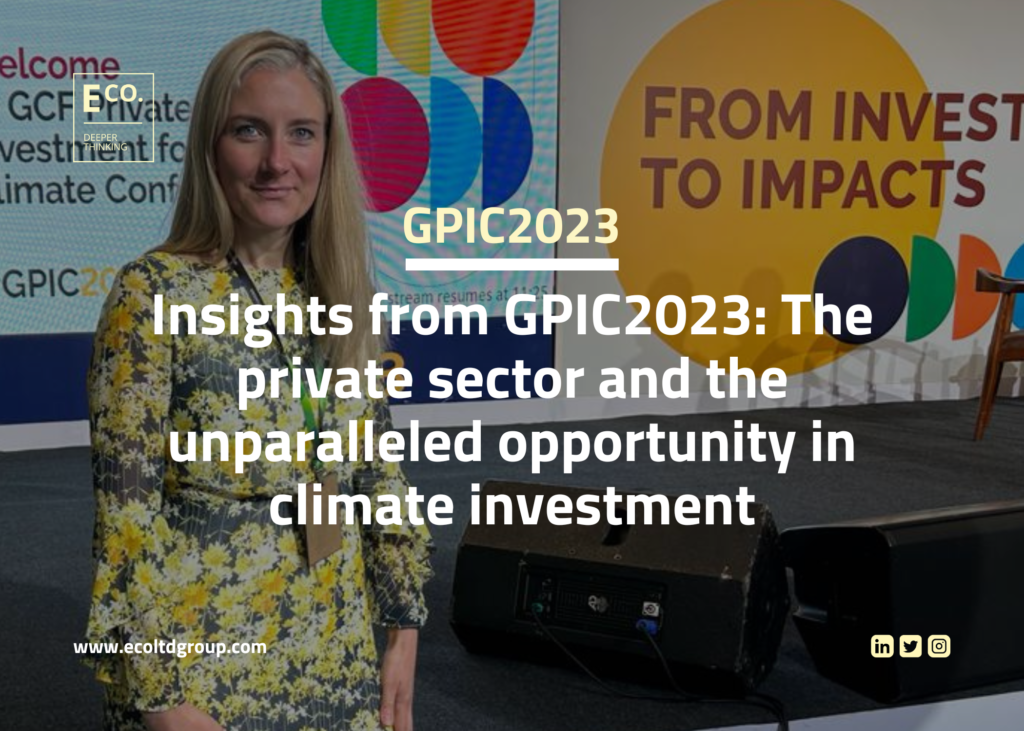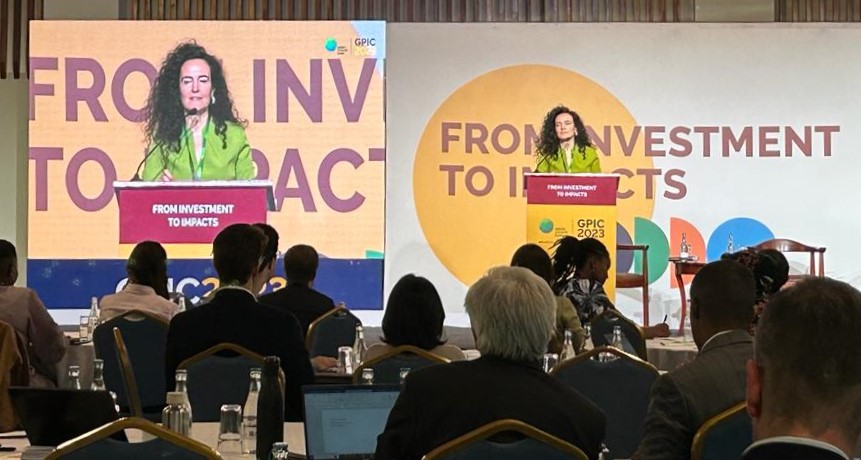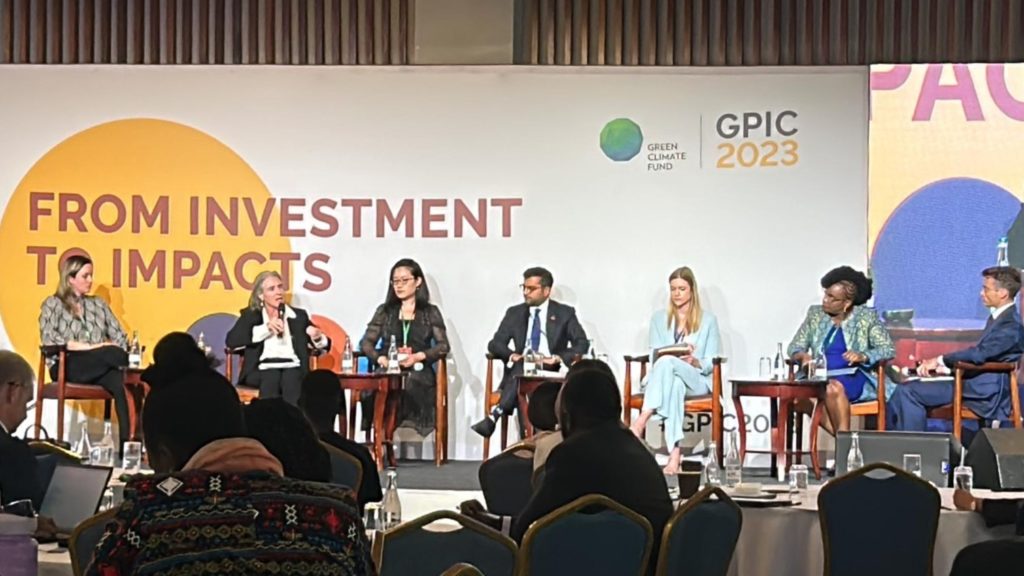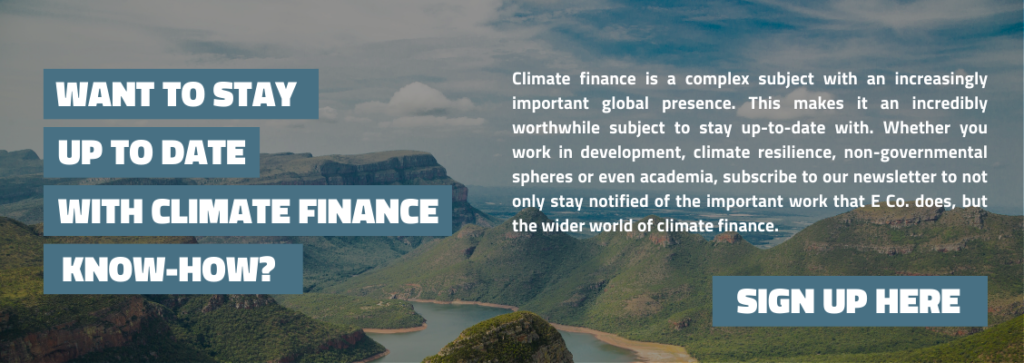Insights from GPIC2023: The private sector and the unparalleled opportunity in climate investment
20 September 2023, Category: All insights, News, Tags: climate finance, gcf, GPIC, GPIC2023, Green Climate Fund

By Rowan Putman
The private sector has a critical role to play in delivering the investment needed to spur innovation and create thriving markets that support our planet.
In September 2023, the Green Climate Fund Private Investment for Climate Conference – or GPIC2023 – brought together key stakeholders from the public and private sectors to discuss this opportunity and how to overcome the challenges that remain.
So what did GPIC2023 teach us?
- What is limiting private sector engagement?
- How to overcome the challenges
- Will the private sector embrace the opportunity available to it?
- How is the GCF helping?
What is limiting private sector engagement?
There are a number of factors that can deter the private sector from investing in climate projects, including:
- Higher perceived risks: Developing countries, where the need for climate investment is greatest, are often perceived as being riskier investment environments. This is due to a number of factors, including political instability, corruption, and poor infrastructure.
- Lower perceived returns: Climate projects can often have longer payback periods and lower returns than traditional investments. This is partly due to the higher risks involved, but also because the markets for climate products and services are still developing.
- Uncertainty about impact: It can be difficult to quantify the impact of climate investments, particularly in the short term. This can make it difficult for private investors to justify their investments.
- Additional effort: Investing in climate projects can require additional effort from private investors. This is because they need to develop new expertise and relationships, and work with new partners.
How to overcome the challenges
There are several things that can be done to overcome the challenges that deter the private sector from investing in climate projects, including:
- De-risking investments: Governments and other public institutions can play a role in de-risking climate investments for the private sector. This can be done through a variety of mechanisms, such as providing guarantees, tax breaks, and first-loss capital.
- Supporting market development: Governments and other public institutions can also support the development of markets for climate products and services. This can be done through a variety of mechanisms, such as providing subsidies, tax breaks, and public procurement.
- Improving transparency: Improving the transparency of climate projects can help reduce uncertainty about impact and make it easier for private investors to assess the risks and rewards of investing.
- Building capacity: Governments and other public institutions can help to build the capacity of the private sector to invest in climate projects. This can be done through a variety of mechanisms, such as providing training, technical assistance, and networking opportunities.
You can explore more ways of engaging the private sector within climate finance in GCF insight #21: ‘Enhancing private sector investment in tackling climate change through the Green Climate Fund’. Read it here.

Will the private sector embrace the opportunity available to it?
GPIC2023 further enforced the idea that the private sector has a clear opportunity to play a leading role in delivering the investment needed to address climate change. The markets for climate products and services are growing rapidly, and there is a strong demand for innovative solutions.
However, the private sector will need to be convinced, and have the conviction and courage that investing in climate projects is a worthwhile proposition. Governments and other public institutions have a role to play in de-risking investments, supporting market development, improving transparency, and building capacity.
How is the GCF helping?
The conversations at GPIC2023 were encouraging. The GCF is leading the way in the development of a comprehensive financial toolkit and have also opened up the possibility to the private sector to apply for finance through their new Project-Specific Assessment Approach to GCF Accreditation – the mechanism that allows potential one-off “project implementers” the accreditation needed to access and deploy GCF funds.
Throughout the two-day conference, success stories were shared by the GCF and others in clean energy, sustainable transport, green infrastructure, and climate-resilient agriculture, to name a few, providing clear examples of the private sector in action and what happens when the public and private sector work in partnership.
However, this is only the start. More needs to be done to create a level playing field for private investors and to make climate investment more attractive.

What’s next?
The private sector holds the vast majority of global capital. To meet the ambitious climate goals set by the Paris Agreement, we need to mobilise trillions of dollars in investment. The public sector cannot do this alone. We need the private sector to step up and invest in climate projects.
The private sector has a clear opportunity to play a leading role in delivering the investment needed to address climate change. The markets for climate products and services are growing rapidly, and there is a strong demand for innovative solutions. However, the private sector will need to be convinced that investing in climate projects is a worthwhile avenue to take.
The GCF is playing an important role in de-risking investments, supporting market development, improving transparency, and building capacity. The conversations at GPIC 2023 were encouraging, but more needs to be done to make climate investment more attractive to the private sector.
GPIC2023 revealed the bottom line – The crisis is now; the opportunity is here!
E Co. provide a range of services designed to support organisations – public and private – with the development of their ideas, concepts and funding proposals. Should you require some advice or hand-holding through the application process for a particular fund, please do get in touch, by emailing Amy@ecoltdgroup.com

Looking for insight into climate finance? Look no further
Get in touch with our climate finance consultants to discuss a project you’re working on and create successful, fit-for-purpose projects, now and in the future. Email us at: amy@ecoltdgroup.com or find us at the following:
Twitter: @ecoltdnews
LinkedIn: E Co.
Instagram: @ecoltdnews
Join the conversation by posting a comment below. You can either use your social account, by clicking on the corresponding icons or simply fill in the form below. All comments are moderated.